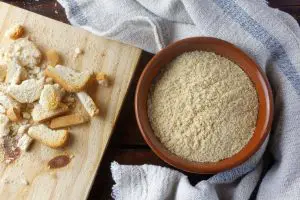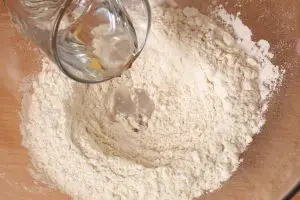Microwaves are familiar sights in homes. They’re an excellent way to reheat food and are an essential household appliance for most. Keeping them in shape, however, can prove daunting when they are used so frequently. Therefore, it’s important to clean and check them from time to time to keep them working well to prevent having to replace them sooner than necessary. However, microwave maintenance doesn’t need to be a daunting task; in fact, they’re not too difficult to keep in good shape on so long as you do so frequently.
The Whys and Hows of Microwave Maintenance
Cleaning the stove or oven isn’t something we think much about these days. It’s usually considered simple maintenance to deep clean these from time to time, but daily maintenance is easy. Cleaning and ensuring they work properly is a part of our lives and not as daunting, so hopefully, we’ll be able to say the same for microwaves.
Following the recommendations of the manufacturer is the first step. Depending on the brand, materials, and age, different steps may need to be taken to get to the harder-to-reach spots in a microwave oven. The steps below can be followed so long as you know and follow the manufacturer’s guidelines for any chemical cleaners and other specific parts of maintaining your microwave.
Microwave Cleaning and Maintenance Can be Simple
Cleaning your microwave doesn’t need to be an all-day affair, at least not when it involves spot cleaning. To keep things from becoming too messy, you can use microwavable food covers or paper towels when heating anything that could pop or splatter. Sometimes, certain liquids and foods can boil over from the heat.
In these cases, keeping a plate or paper towel beneath the bowl or cup you’re microwaving can save you time later. And should something get onto the microwave door or interior, cleaning it while it’s warm is the best option. Once any residue dries or, worse, is later reheated when used again, you may need to perform a more thorough clean.
Keeping the microwave working outside of cleaning it can include simply checking for any damage. Buttons on a microwave weather far faster than anything else, and ensuring they’re clean and functional is important. If you have a valid warranty and something seems broken, reaching out to the manufacturer may be a good option.
When Surface Cleaning isn’t Enough, Deep Cleaning Comes Next
Every so often, deep cleaning your microwave is necessary. There will always be a splatter missed or a spill that went unnoticed. It’s even more pressing if you have a carousel in your microwave—the plate and wheels can hide dirt and grime beneath them, after all.
Depending on the severity of the mess, cleaning with harsh chemicals may be the best option. Again, following the recommendations from your microwave manufacturer is paramount to prevent accidental technical damage or create cosmetic flaws. However, you can clean your microwave using natural methods without needing to expose yourself or your family to harsher cleaning chemicals.
You Can Steam Clean your Microwave Without Chemicals
Steam cleaning can be used for many different appliances. Coffee makers, some water filters, and microwaves can all benefit from steam cleaning. It involves filling a bowl with water and vinegar—the ratio of which depends on the size of your microwave. The most common ratio is to use one cup of water with two tablespoons of vinegar. You can add or subtract as necessity requires. Adding a toothpick to the bowl stops the mixture from boiling over once you begin heating it.
Once everything is set up, all you need to do is set your microwave to cook for four minutes—although you can increase this if you’re using a larger amount of the mixture. The smell of vinegar will waft throughout your kitchen, which can be far preferable to the stronger odors from regular household cleaners.
After the microwave finishes, leave the bowl and the microwave alone for three minutes. This allows the steam to cool, and when you’re ready, you can wipe the interior with a sponge.
This can be done when you need to or every few months depending on the frequency of use.
Protecting your Microwave from Wear and Tear
Tips to prevent damage to your microwave can be essential if it is a regularly used appliance in your home. The numbers on the microwave, as stated, can face the most abuse day-to-day. Ensuring you’re not pressing the buttons too hard will prolong the lifespan of your microwave. They are pretty durable, but microwaves have a lifespan of five to ten years. If the buttons are worn out too soon, the unit may need to be replaced faster than expected.
It’s a bad idea to turn on your microwave while it’s empty. The appliance will wear out quickly if this is done too frequently because the heat generated will not be absorbed by anything but the unit itself. It’s also a generally good idea to use the preset settings on your microwave for specific purposes, such as making popcorn or thawing foods.
Similarly, these appliances can break down if you open or close the door while the unit is turned on. Forcefully slamming the door can cause the same degradation.
Not using microwave-safe containers in your appliance can damage both the container and the unit. Even if the container you’re using isn’t visibly damaged once it’s removed, the microwave itself may have suffered.
Microwaves Are Essential and so is their Maintenance
Appliances are not expensive, but the microwave oven can seem less costly in comparison. However, having to spend money on a new one should your old one break can be avoided with simple, regular maintenance. Cleaning your microwave is one of the easiest ways to maintain it—after all, a clean microwave is far more efficient than a dirty one.
Keeping in mind any specific requirements the manufacturer recommends as well as regularly checking that the appliance is working as it should are excellent ways of keeping your unit working well for years to come.






